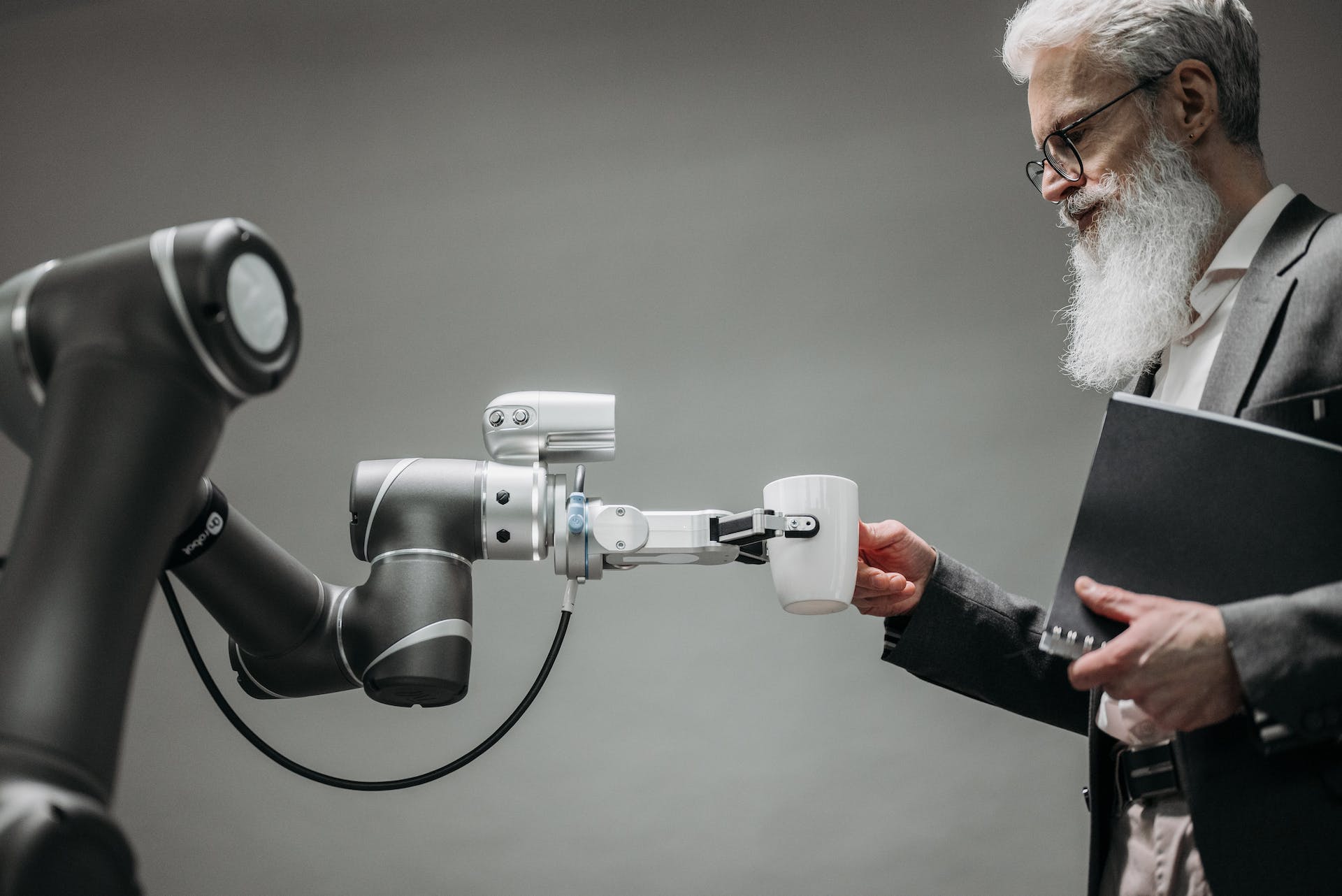Introduction:
In the ever-changing world of healthcare, adding Artificial Intelligence (AI) is bringing new chances. This article wants to talk about how AI is changing healthcare. It will look at how this technology is making medical tests, patient care better and helping research work different ways. AI is getting involved in many parts of healthcare. It helps with tests and makes personal plans for treatment.
In the ever-evolving landscape of healthcare, the integration of cutting-edge technologies has ushered in a new era of possibilities. At the forefront of these transformative changes is the ubiquitous “AI in medical.”
Artificial Intelligence (AI) in medical applications is redefining the way we approach diagnostics, patient care, and treatment strategies. In this article, we delve into the multifaceted impact of AI in medical domains, exploring its potential to revolutionize the healthcare sector.
AI in Medical Field
- Precision Diagnostics Through AI in Medical Imaging:
AI improvements have allowed for more accurate medical tests, especially in the area of pictures. AI in medical picture use promises better precision and speed. AI is helping health workers by finding small problems in x-rays and speeding up the process of understanding them. The use of AI in medical pictures not only helps us find diseases early but also changes how we make decisions about diagnosis.
- Personalized Patient Care: The AI Revolution:
The big change brought on by AI in health care goes beyond just checking for diseases. It also moves into the area of tailored care for patients. AI’s power to study big sets of data lets us make personal treatment plans just for patients.
AI in medical uses makes it possible to give patients treatments tailored just for them based on their personal health problems. AI is becoming a necessary tool for health care workers. It helps with medicine, treatment changes and care after surgery. This makes a better model that focuses on the patient.
- The Future Unveiled: AI and Medical Research:
In the future, AI in medical research will change how science is found and moved forward. AI can look at lots of genetic information, find patterns and speed up making new drugs. Using AI in health research helps make new treatments faster.
It also lets us learn more about and solve big health problems. In the future, AI and medical improvements can work together to change how we get care. This could make healthcare more available, accurate and fitted for what each patient needs.
How Ai Helps in medical field
- The Role of AI in Medical Diagnostics:
AI’s involvement in checking images with doctors has made a big difference in medicine. Using advanced ways, AI increases the correctness and speed of health checks in fields like x-rays and sick parts studying. This part will look at many ways AI is used in checking pictures. It’ll give examples how these tools help find problems early and make better results for patients.
- Enhancing Patient Care through AI:
A big part of the health care change is how AI helps improve patient care. AI is changing how doctors and health workers work with patients. It lets them watch closely and make special plans for each person’s care. In this part, we will discuss how AI affects patient involvement by using health helpers and talking robots. Moreover, it will talk about right and wrong issues along with possible worries that might come up when bringing AI into the care of patients.
- AI and Precision Medicine:
AI is being used in precision medicine, which means treatments are made to fit each person’s genes. This idea is becoming more popular. This part will explain how AI helps to make precision medicine better, especially in finding and making new medicines. Real-life examples will be shown to show how AI is used well in making personalized medical treatments better for patients.
- Challenges and Opportunities in AI Healthcare Adoption:
The hope for AI in health care is very big, but its use can have problems too. This part will explain the problems stopping AI from being widely used in healthcare places. At the same time, it will look at ways doctors and nurses can use AI in medical to make patients better, work more easily and do better medical studies. We will focus on fixing issues about privacy, safety with data and needing laws that are the same everywhere.
Visit our website for daily and latest News and other informative content
Best AI tools to use in Medical Field
Artificial Intelligence (AI) is in the healthcare industry, bringing new tools that promise to change how we care for patients and make diagnoses. These changes also affect treatment plans. Below are some noteworthy AI tools that have gained prominence for their efficacy and potential to enhance healthcare outcomes:
- IBM Watson Health:
IBM Watson Health is a complete AI system made to look at and understand big medical information. Watson Health helps make medical choices by using machine learning and natural language processing. It also gives information for finding new drugs. Its fast processing of a lot of data makes it good for health workers who want to find useful information from patient files, research papers and medical tests.
- Google DeepMind’s Streams:
DeepMind, a part of Google, made Streams. This tool helps patients by using smart technology to improve care and results. Streams looks at patient info and helps doctors see bad health problems early. Streams helps healthcare workers get quick updates and important information. This helps them make good choices, especially in very serious situations.
- PathAI for Pathology:
PathAI helps doctors use AI for pathology. This makes it easier and more accurate to find diseases. The tool helps check medical pictures, like pathology slides. It spots hard-to-see patterns that can be tough for our eyes. This not just speeds up the process of finding what’s wrong, but it also helps make treatment plans more accurate.
- Tempus for Oncology:
Tempus uses AI and machine learning in cancer treatment to make individual plans. By looking at health and science information, Tempus helps doctors learn about the best medicines that fit a patient’s unique cancer test. This method for accurate cancer care tries to make treatments better and reduce unwanted effects.
- Zebra Medical Vision:
Zebra Medical Vision aims to use AI for checking medical images. The tool helps doctors find problems in pictures from scans like X-rays and CT scans. Zebra’s programs learn to see different health problems such as liver diseases, heart issues and bone health. This helps doctors be more accurate at diagnosing patients faster by checking pictures from medical tests.
- Aidoc for Radiology:
Aidoc makes AI help for radiology, which helps doctors see big problems like strokes, lung blockages and spine breaks faster. This tool uses big learning methods to study medical pictures. It gives quick tips in real time that can cut down the time needed for important choices about diagnosing diseases.
- Health Fidelity for Coding and Documentation:
Health Fidelity uses simple writing and computer learning to help health companies with coding and paperwork. Health Fidelity makes coding automatic, helping make sure healthcare providers bill right and reduce mistakes. This lets them pay more attention to taking care of patients.
Conclusion:
As these AI tools keep getting better and accepted more in the healthcare business, they have a chance to change how patient care, figuring out diseases and medical research works. Adding in these new ideas not only makes healthcare work better, but it also allows for personal and accurate ways to treat illnesses. Using these AI tools is a move towards a better healthcare system that focuses more on patients and uses technology.
In the end, the working relationship between AI and healthcare is changing the whole system. AI is a good change maker. It helps improve tests, patient care and guiding accurate medicine. By fixing problems and taking chances, the healthcare business can use all of AI. This will lead to amazing growth and better health around the world.


